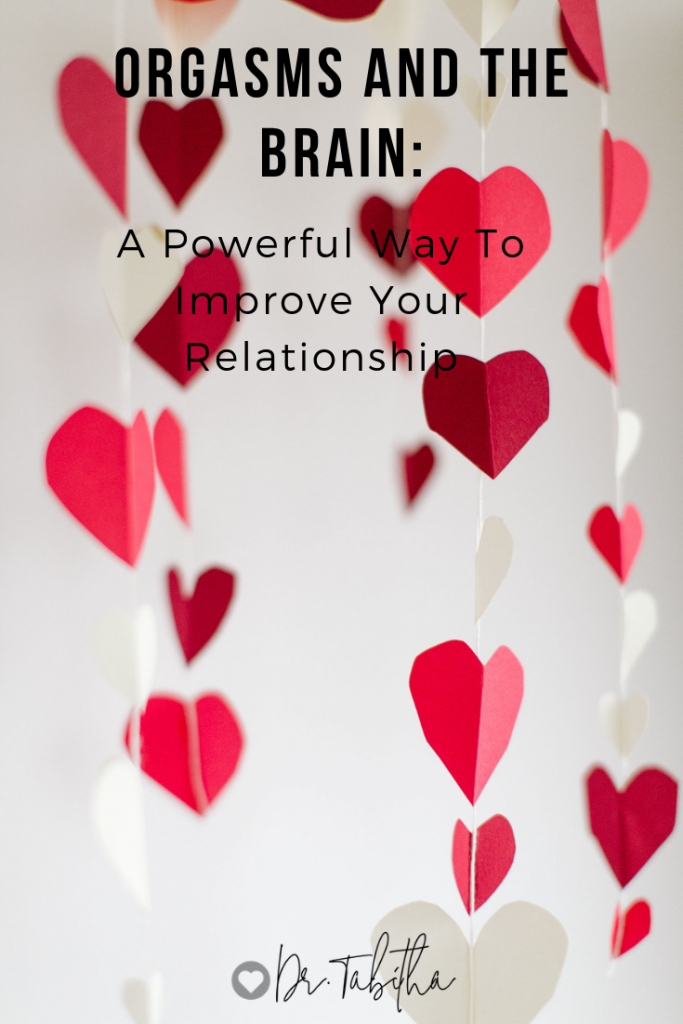
Have you ever wondered the role of the brain during orgasms? You probably know sex improves relationships, but have you ever wondered what role orgasms play in your relationship? When a couple is enjoying each other, kisses, touching – the focus is on the senses and pleasure. It all feels very physical but the brain actually plays a pretty big role.
I’ve heard people argue that there isn’t enough blood to supply both the brain and the genitals simultaneously. However, research in men and women have found that the brain plays an important role during sexual intercourse and orgasms, much more than one may expect. The nervous system translates sensations to the brain which is in charge of processing them. As the most complex part of the body, the brain not only decides if such sensations are pleasurable, but also influences feelings and emotions related to attachment and love.
How can orgasms improve your relationship?
There are several nervous systems in charge of carrying the sensations from the genitals to the brain during an orgasm. In women, these nerves are located in the uterus, cervix, vagina, clitoris and rectum. In men, they are located in the prostate, scrotum, penis, and rectum. Once this information reaches the brain, it activates certain brain regions and stimulates the production of hormones that act as neurotransmitters. Not surprisingly, these areas and related processes are also in charge of bonding, faithfulness, love, and relaxation.
Bonding
While you focus on the sexual pleasure of an orgasm, your brain produces oxytocin. This hormone, often referred to as ‘the love hormone,’ has a strong impact on bonding. Oxytocin is also released when you cuddle with a loved one and during social interactions where you feel a strong connection. Oxytocin is also present when you enjoy a new and exciting activity together. This is why people feel so connected while dating—everything is new and exciting!
Loyalty
According to research, this same hormone -Oxytocin, also helps men in monogamous relationships to keep their distance with other women. This minimizes the opportunity to establish contact during social interactions, limits men sending signals of interest. It promotes monogamy and loyalty.
Love
The nucleus accumbens of your brain also becomes activated during sexual intercourse and orgasm. This region releases dopamine, a hormone associated with pleasurable and rewarding feelings. Dopamine is commonly referred to as the “feel-good hormone.” An article by Harvard Medical School, describes the association between this region with feelings of romantic love. Researchers observed that this area of the brain was activated when people saw a picture of a loved one. How do you feel when you see a picture of your partner or recall a good time you shared?
Relaxation
Another part of the brain involved in orgasms is the amygdala. This part of the brain is in charge of feelings like anger, fear and aggressive responses. The survival instincts such as the flight or fight response are also located in the amygdala. This means the more active the amygdala is, the more intense the anger, fear or aggression would be. By contrast, during an orgasm the activity of the amygdala decreases and the person feels calmer and relaxed. Who knew orgasms could be so powerful?
Even though satisfying sex is crucial for a healthy relationship, it’s often one of the first things we overlook when life gets busy. If you’re struggling to shut off your mind or put things down to spend intimate time with your lover, check out my previous blog on scheduling sex.
Have you ever scheduled sex? What was your experience like?






Leave a Reply
Your email is safe with us.